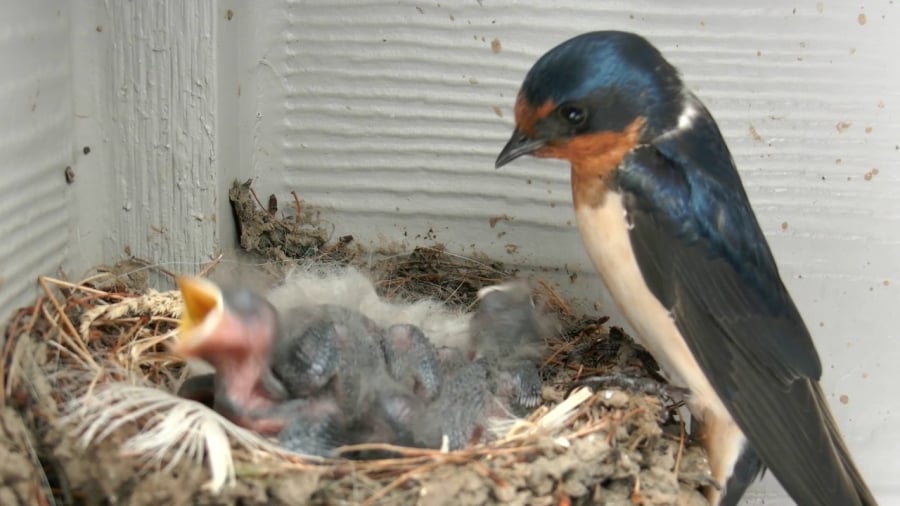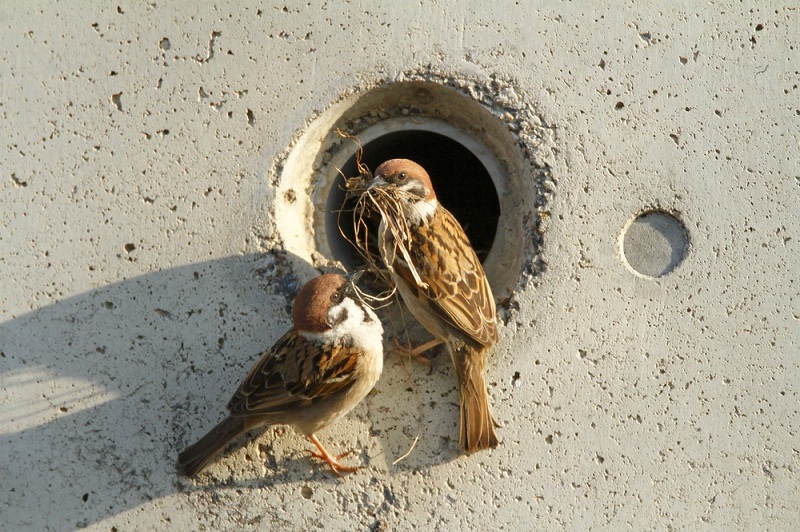1. Good Fortune: The Ancient Belief of Visiting Birds

The Beloved Bird of Good Omen and Festivity
In ancient times, visiting birds were often regarded as messengers of joy and good fortune. Thus, when a visiting bird flew into a house, it was considered a positive omen, foretelling the arrival of a benefactor or an impending joyous occasion for the household.
The auspicious image of this bird stems from its beautiful appearance and lively character. With its small size, bright plumage, and cheerful hopping between branches, it brings a sense of happiness and lightness to all who witness it.
The song of this bird is as sweet as a melody, leading people to view it as a symbol of beauty and harmony. Its graceful and delicate flight resembles that of a dancing fairy, further enhancing its auspicious and delightful nature.
2. Harmony and Peace: The Ancient Belief of Swallow Birds

The Beloved and Beneficial Swallow
One of the greatest joys, according to ancient beliefs, is waking up to the cheerful chirping of birds outside your window or having a swallow bird build its nest under your eaves.
An ancient saying goes, “Swallows do not enter a poor house.” In reality, because swallows are shy and quiet, they tend to choose homes with harmonious families to build their nests.
A harmonious family naturally leads to a happy life, and with family comes prosperity. Thus, the saying, “Swallows do not enter a poor house.” If a family is constantly arguing and creating a ruckus, the swallows will not come to nest.
It was also believed that swallows entering a house signified a large family with many children and grandchildren. This, too, speaks to the peaceful and harmonious environment within the home. When a couple is loving and harmonious, they are sure to be blessed with a big family—a dream come true for people of the past.
Undoubtedly, a family like this will prosper and thrive.
3. Prosperity: The Ancient Belief of Sparrow Birds

The Humble Yet Revered Sparrow
Sparrows are highly regarded for their strong reproductive capabilities and intelligence. If a sparrow builds its nest in a new house, it signifies that the house is blessed and that living there will lead to prosperity and a large family, just like the sparrow’s own.
Additionally, sparrows are believed to bring wealth. According to folklore, sparrows collect seeds from far and wide and bring them back, ensuring a bountiful harvest.
In some places, there is even a ritual of offering food to sparrows. During this ceremony, people scatter prepared rice and water in the fields and invite the sparrows to feast, a tradition known as “sparrows eating rice.”
Despite their small size, sparrows possess noble qualities such as diligence, perseverance, and unity, which are highly valued by ancient people.
Therefore, when a sparrow enters a house, it is considered a good omen, foretelling the presence of a hardworking individual within the household and the arrival of prosperity and abundance.
The spirit of endurance displayed by sparrows, despite harsh weather conditions, is truly admirable and inspiring. They bravely endure bitter cold, scorching heat, and stormy weather, always persevering and working diligently. This spirit encourages people to maintain a resilient and courageous attitude when facing life’s challenges.
The emphasis on the unity and teamwork displayed by sparrows, despite their small size, is also noteworthy. They understand the power of collaboration and use it to their advantage, uniting to defend their territory and food sources from intruders. This reminder of the importance of teamwork and unity in modern society is a valuable lesson from these tiny birds.
Hence, the ancient belief that sparrows entering a house is a blessing holds true.
The ancient saying, “Three birds flying into a house bring benefactors and good fortune,” encapsulates the hopes and aspirations of people for daily blessings and happiness.
When birds fly into a house, it is seen as a positive sign, foretelling good fortune or the arrival of a benefactor. This belief inspires people to maintain a positive outlook on life and strive for a beautiful and happy existence.
(This article is for reference and contemplation only)



































